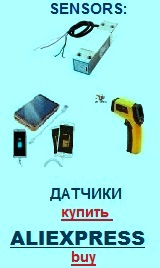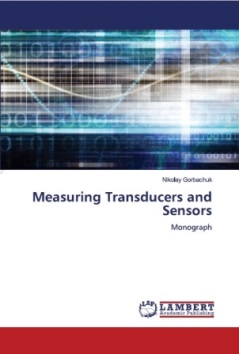Transducers, gauges, sensors - Information portal © 2011 - 2025 Use of material is possible by placing an active link

Alloys for thermocouples
Absolute majority of thermocouples is made from metallic alloys. It should be noted that there are materials with far greater values thermo - E.m.f. To such materials semiconductors behave first of all. However technology of making of thermocouples from semiconductors is very difficult and unperfect.
For making of thermocouples mostly use next alloys:
1) kopel (56% Сu and 44% Ni); 2) alumel (95% Ni, other - Al, Si and Mn); 3) chromel (90% Ni and 10% Сг); 4) rhodium platinum (90% Рt and 10% Rh).
Dependences thermo - E.m.f from the difference of temperatures hot and cold shuts for different thermocouples brought around to a fig.1.
Change, even not large, composition of alloy thermo - E.m.f can result in the considerable changes of sizes. In these cases for achievement of high exactness the preliminary calibrating is needed, instead of the use of standard tables.
Thermocouples are applied for measuring of such temperatures : rhodium platinum is platinum to 1600°C; a copper is a constantan and copper - that kopel to 350°C; iron is a constantan, iron - kopel and chromel - kopel to 600°C; a chromel is an alumel to 900-1000°С.
From the known metallic thermocouples most thermo - E.m.f at the identical difference of temperatures a thermocouple has chromel - kopel. Sign thermo - E.m.f at brought around to a fig.1 thermocouples such: in a cold shut a current is directed from the first material adopted in a pair to second (from a chromel to kopel, from a copper to the constantan and etc.) one, and in the hot end of - vice versa.
Most thermocouples steadily work in an oxidizing environment. In the process of the protracted exploitation there can be a fade thermo - E.m.f. Reasons of such instability are contamination admixtures from an ambientair, wires oxidization, volatility of components, sharp bends and mechanical deformations which bring in internal tensions and create heterogeneity of structure. By the most high stability, exactness, a producibility is possessed by rhodium platinum thermocouples, in spite of small value thermo - E.m.f. It contingently the chemical sluggishness of material, high degree of cleanness of the got material.
Fig. 1. Dependence thermo - E.m.f from the difference of temperatures hot and cold shuts for thermocouples: 1 is a chromel - kopel, 2 is iron - kopel, 3 is a copper - kopel, 4 - iron is a constantan, 5 - a copper is a constantan, 6 - a chromel is an alumel, 7 - rhodium platinum is platinum
русский / english
Calibrating of thermocouple (calibration charts)
For a condition, when a free end(shut) of thermocouple is at the zero of degrees celsius. A temperature is driven to °C, E.M.F. (tension) in mV.
chromel - alumel (-270 °с to 1370 °с)
(0 °с to 1820 °с)
chromel - constantan (-260 °с to 1000 °с)
copper - constantan (-270 °с to 400 °с)
chromel - kopel (-20 to 200 °с)
• Information about various converters and sensors of physical quantities, parameters of various physical processes is presented.
• Electrophysical properties and effects in various electrical materials.
• Theory, experimental results, practical application

See also:
CONVERTERS, GAUGES, SENSORS
Information, news, advertising


